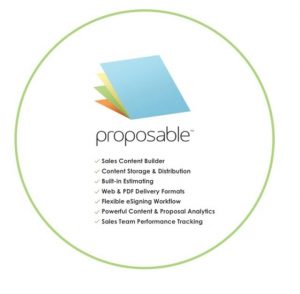
No matter what industry you’re in, if you own or manage a small business, you’re likely to suffer from the same two major challenges as other small businesses:
- Lack of cash
- Lack of time
There is no denying that running a small business can be difficult. In all my years in business, and all the interviews I’ve done with other business owners, I’ve realized there are a number of common problems, the top two being time and money (and not necessarily in that order).
Here is some practical advice on how to address the challenges that otherwise will sink your company.
Problem #1: Cash Flow

The number one challenge of small businesses is cash. Even if a business is profitable on paper, it’s astoundingly easy to hit the bottom of your bank balance.
Solution #1: Find A Way To Generate Recurring Revenue
My last company, an outsourced IT services firm, almost didn’t make it. The standard sorts of projects we were working on just didn’t create the kind of consistent cash flow we needed and – even after a few cash infusions, including mortgaging my house – our bank balance was hovering near zero.
However, we were about to land a new client. It was a big contract and would certainly put us in the black for quite some time. I had a great relationship with the client. All seemed to be headed in the right direction.
Sadly, after a lot of hard work trying to win the contract, they told me they’d decided to go with another firm!
We had a great relationship, and they told me they wanted to work with me, but we didn’t offer what the other firm did – a monthly service contract with remote management (which at the time was new technology). The monthly contract also meant a fixed (predictable) expense each month for the client.
From my perspective, it was predictable revenue for the IT service provider. I asked for a couple of days to be able to redo my proposal, got my partner to figure out the technology end of it… and we won the contract – which meant that we now had money coming in each and every month.
More importantly, we had a new business model. One that was much more stable and much more valuable.
Starting out each month at zero is very likely to kill your business. That’s why I strongly recommend building in a recurring revenue model, so that you automatically have income coming in each and every month. The other piece of the puzzle is getting the leads so that your recurring revenue clients can find you. That’s where inbound marketing comes in.
Problem #2: Limited Time
We all have a limited amount of time in which to do our work.
As a small business owner, this becomes painfully obvious. You may end up finding yourself work hours so long that you wonder why you started that stinking business in the first place.
Solution #2: Create Systems To Automate As Much As Possible
 Luckily, there are ways to maximize the time you do have available.
Luckily, there are ways to maximize the time you do have available.
Focus On Bringing In Money
First, stop trying to do everything yourself. Prioritize your top activities – these should be revenue generating.
Set up a routine so that you’re focused on what brings you results (in the form of revenue) before all else.
Systematize What You Can
Second, get yourself set up with smoothly running systems for the things that need to be done repeatedly in your business.
If you’re not familiar with the now classic E-Myth: Why Most Small Businesses Don’t Work and What to Do About It, it’s well worth a read. The big takeaway of the book is to get out of the minutiae of your business, by developing systems. There are a number of benefits to this:
- Because you have figured out exactly how you’re going to do a particular task, that task requires less mental time and energy
- It allows you to easily train new employees (or outsourcers) to do the repetitive tasks
- It allows you to grow your company more efficiently
- It allows you to automate tasks, saving even more money because you don’t have to worry about labor
My Favorite Way To Automate
I’m a huge fan of Infusionsoft. It’s a seriously powerful automation software that allows me to:
- Lead generation on my website
- Customized, personalized follow up lo leads to help convert them to customers
- Email marketing
- eCommerce
- Offline payment processing
- Digital product delivery
- Automate internal processes
Here’s the caveat to all of this: Although I’m a big fan of Infusionsoft, its strength is in helping you convert your website visitors to customers, and managing everything behind the scenes during and after that process. If you aren’t getting enough traffic to your website, Infusionsoft won’t be enough in and of itself. That’s why I also use HubSpot – and a solid inbound marketing strategy.
Business & Finance Articles on Business 2 Community
(298)
Report Post




